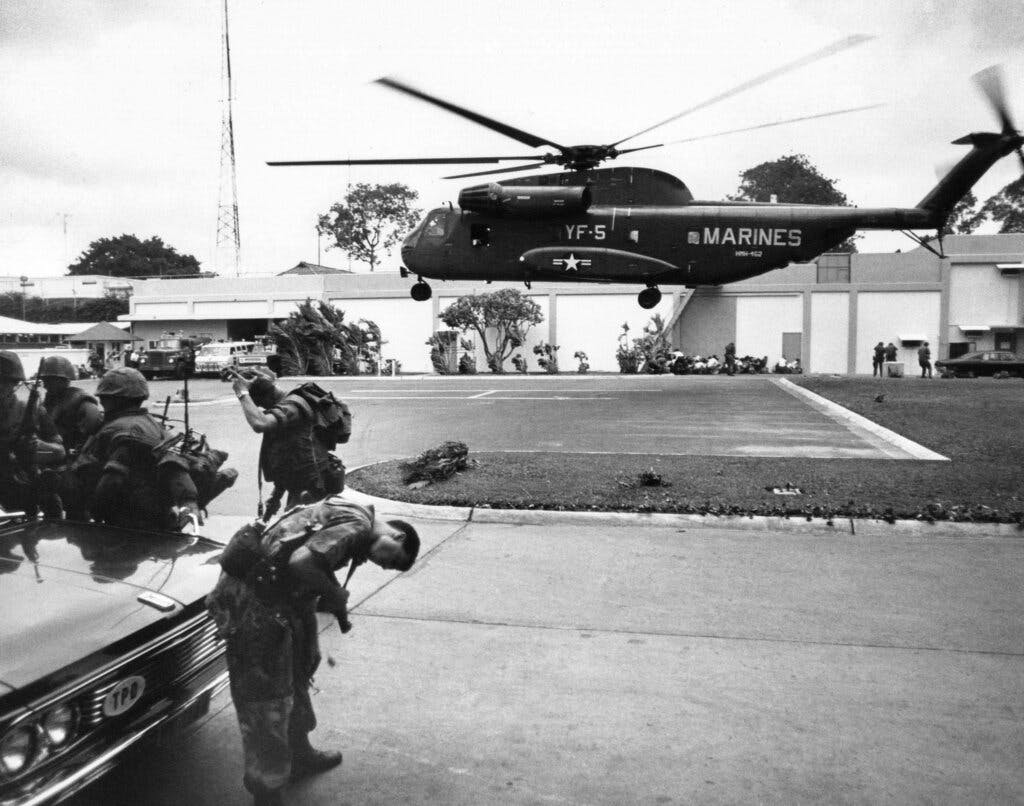After the Obituary for South Vietnam
Fifty years after the Wall Street Journal published one of a generation’s most famous op-ed columns, Vietnam emerges as a teaching moment.

The first thing we did over the weekend was settle down with a cup of coffee and Saturday’s Wall Street Journal to savor the reprint of its “Obituary for South Vietnam.” It was written by the Journal’s famed war correspondent, Peter Kann, and first published the day after the fall of Saigon, 50 years ago Wednesday. The Journal’s editor, Robert Bartley, told several colleagues that he reckoned it was the finest op-ed column the Journal had ever published.
What Bartley — now gone, alas — so admired about Mr. Kann’s essay was no doubt, in part, the warmth of his sentiments for the Vietnamese people and his appreciation for their own longing for the freedoms America enjoys. Not to mention Mr. Kann’s admiration for Free Vietnam’s preparedness to stay in the fight. “What cause would motivate you or me to fight for 25 years?” Mr. Kann asked at one point in the column’s 2,000 words.
It echoes two generations later as a powerful question. America, after all, lasted only 20 years in Afghanistan and even fewer in Vietnam. Yet if we read Bartley right, what most impressed him about the column was Mr. Kann’s emergence as on South Vietnam’s side. Plus Mr. Kann’s willingness to mark that point so eloquently at the hour of Free Vietnam’s defeat and humiliation. It’s hard to think of another column in any publication quite like it.
Mr. Kann’s obituary for Vietnam was, it turns out, ahead of its time. We say that in the sense that over the years many of those who opposed the war — or just dodged it — began to feel uncomfortable with the history that unfolded. Joan Baez, who spent the Christmas bombing of 1972 at Hanoi protesting her government back home, eventually became critical of the tyranny the communist victors were imposing on Vietnam.
As times changed, Senator Blumenthal, a Marine who served in the reserves during Vietnam, once suggested that he had served in Vietnam. The boast caused him an embarrassing hoopla. The Chicago Seven tried to claim that their protests against the war were on behalf of American GIs. The fact, though, is that the only ones fighting for our GIs in Vietnam were other American GIs (and South Vietnamese soldiers), who appeared with them in arms.
Mr. Kann once joined us for a small Sun editorial dinner with Henry Kissinger. At one point, we often recount, the former state secretary posed a “trick question.” When in 1975 Democrats in Congress cut back resupplying South Vietnam, he asked, how many American GIs were still in the country? The answer was none. The anti-war movement was not about saving GIs. No, it was about delivering Vietnam to the North Vietnamese communists.
As we were writing this, we put in a call to Mr. Kann and asked him how he sees things today. “A little more optimistic about Vietnam,” he said, “and less optimistic about America.” Vietnam, though by no means a free state, has emerged as a reasonably successful, semi-free market country and is getting more open to the world. “As for America, the lesson we should have learned is don’t sell out the trust of the countries that believe in you.”
“We obviously didn’t learn that lesson very well in Afghanistan, and while the war in Ukraine isn’t our war, the Ukrainians understandably believe in what they’re trying to do — defeat Russian aggression.” His comment underscored the Journal’s headline over the reprint of his long-ago column. “The fall of Saigon was a foreshadowing of the 2021 U.S. abandonment of Afghanistan,” it said. “Will Ukraine suffer a similar fate?”
Mr. Kann reminded us of an editorial point that came out of the war in Indochina. It was that we won the war militarily only to lose it in the Congress, which had so shockingly curbed support for Vietnam while Vietnam was being attacked by the communists. Yet it eventually became clear that we’d won the larger war over whether communism or capitalism was better for the developing world. The obituaries that followed were for the Soviet Union. Who’s next?

